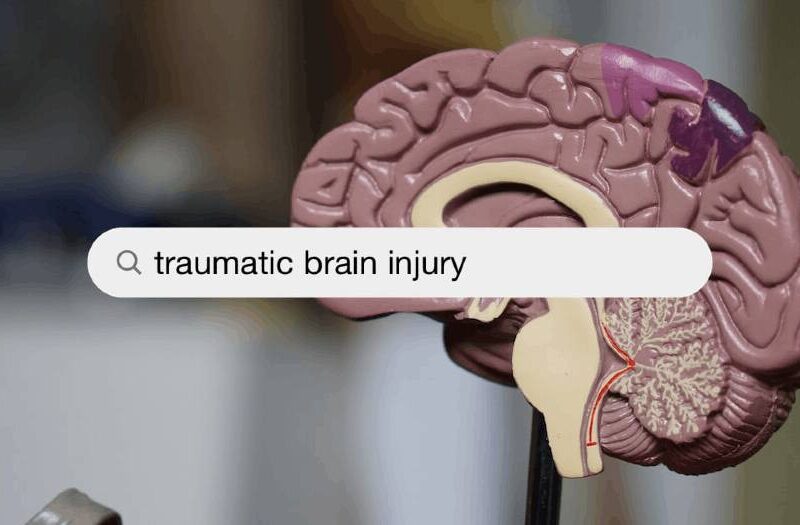Traumatic Brain Injury (TBI) is a significant health concern, affecting millions of people worldwide. Understanding the nature of TBI, its causes, and the process of recovery is crucial for patients, their families, and healthcare providers. This article aims to provide a comprehensive overview of TBI, its treatment, and long-term management.
What is Traumatic Brain Injury (TBI)?
A traumatic brain injury is a disruption in the normal functioning of the brain due to a blow, jolt, or penetration to the head. TBI can alter a person’s physical abilities, cognitive functions, and emotions, and its effects range from temporary disorientation to long-term cognitive impairment or even death.
Causes of TBI
The leading causes of TBI include falls, being struck by or against an object, and motor vehicle accidents. Sports injuries and physical assaults also contribute significantly to the incidence of TBI. In the US alone, approximately 65% of TBI cases are attributed to falls and being hit by an object. If you believe your injuries were caused due to someone else’s negligence, you should hire a Traumatic Brain Injury Lawyer immediately.
Degrees of TBI: Mild, Moderate, and Severe
Based on severity, TBI can be categorized as mild, moderate, or severe. A concussion, the most common form of TBI, is usually considered mild, but if left untreated, it can lead to severe, long-term damage.
Moderate TBI, while more severe, generally allows for most or all brain function to be regained following a period of recovery and possible medical interventions such as surgery or therapy.
Severe TBI often has a more unpredictable prognosis, with recovery depending on various factors including the location and severity of the injury, the length of coma, and other individual factors.
Effects of TBI on Individual Functioning
Depending on its severity, a TBI can affect various aspects of a person’s life. Physical abilities, cognitive functions, and emotional stability can all be impacted. Even mild TBI can result in headaches, dizziness, and fatigue, while severe cases can lead to physical disabilities, memory loss, and personality changes.
The Road to Recovery
Recovery after a TBI is a gradual process, with most people regaining most or all of their brain function over time. However, the recovery process can be challenging and often requires the assistance of medical professionals and therapists.
In the case of severe TBI, long-term effects generally increase with the length of recovery required, and comprehensive rehabilitation programs are often needed to help individuals regain their independence and quality of life. During this time, especially if the injury was caused by an accident or negligence, working with a closed head injury attorney can help ensure that legal and financial needs are addressed while the focus remains on healing.
Understanding Non-Traumatic Brain Injuries
Non-traumatic brain injuries, also known as Acquired Brain Injuries (ABI), are caused by internal conditions rather than physical trauma. These injuries can be due to factors like lack of oxygen (hypoxia or anoxia), drug overdose, electric shock, heart attacks, infectious diseases, severe seizures, strokes, or tumors.
Treatment and Rehabilitation
Following a brain injury, immediate treatment is critical. This typically involves an assessment by a team of healthcare providers, including obtaining blood work and imaging of the head. If there is bleeding within the brain, further imaging or procedures, including surgery, may be necessary.
Once initial treatments are completed, patients are typically admitted to the hospital for monitoring. A crucial aspect of treatment is preventing further brain injury, which is why healthcare professionals focus on treating patients in the initial hours and days after injury.
When it comes to the cost of treatment, it’s natural to want the best care available, which often requires a significant financial commitment. But don’t worry; if your injury was due to someone else’s negligence, you may be eligible to claim compensation. In such cases, it’s wise to consider legal assistance from Leading Frisco TBI attorneys, or elsewhere. They can guide you through the claims process, help you understand your rights, and ensure you pursue the compensation you are entitled to. Experienced attorneys can gather the necessary evidence, build a solid case, and advocate on your behalf, aiming to relieve the financial burden of medical expenses, rehabilitation, and other related costs so you can focus on your recovery without added stress.
The Brain’s Adaptation Process after an Injury
Even though brain cells, or neurons, cannot regenerate and injuries often lead to tissue death and structural damage, surviving brain cells can adapt to compensate for the loss. This process, known as neuroplasticity, involves the brain rerouting information and functioning around the damaged area. Rehabilitation therapies can complement and accelerate this process.
Living with a Brain Injury
Life after a brain injury can be challenging, and adjustments will likely need to be made. However, with time, patience, and the right support, individuals can lead fulfilling lives post-injury. It is important to remember that each person’s recovery journey will be unique, and progress should be celebrated, no matter how small.
Therapies for TBI Recovery
A variety of therapies can aid in TBI recovery, depending on the affected areas of the brain and the individual’s needs. These may include:
- Speech and language therapy: To enhance communication and manage swallowing abilities.
- Physical therapy: To improve mobility and coordination.
- Occupational therapy: To improve skills needed for daily living and work.
- Psychological counseling: To address mental trauma related to the injury.
- Cognitive therapy: To focus on memory, focus, learning, and judgment.
Returning to Normal Life Post-Injury
Returning to normal activities post-injury should be a gradual process. It’s crucial to avoid physically demanding or concentration-intensive activities that could exacerbate symptoms or slow down recovery. Driving, working, or other everyday activities should only be resumed when deemed safe by a healthcare professional.
Conclusion
Navigating the journey of TBI recovery is a challenging process, but with the right support and resources, individuals can regain their independence and quality of life. It’s crucial to remember that no two brain injuries are the same, and recovery will look different for everyone. With patience, perseverance, and the right help, individuals can learn to live with and overcome the challenges of their injury.







